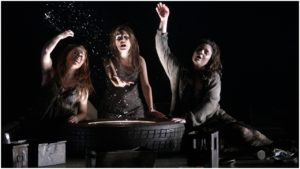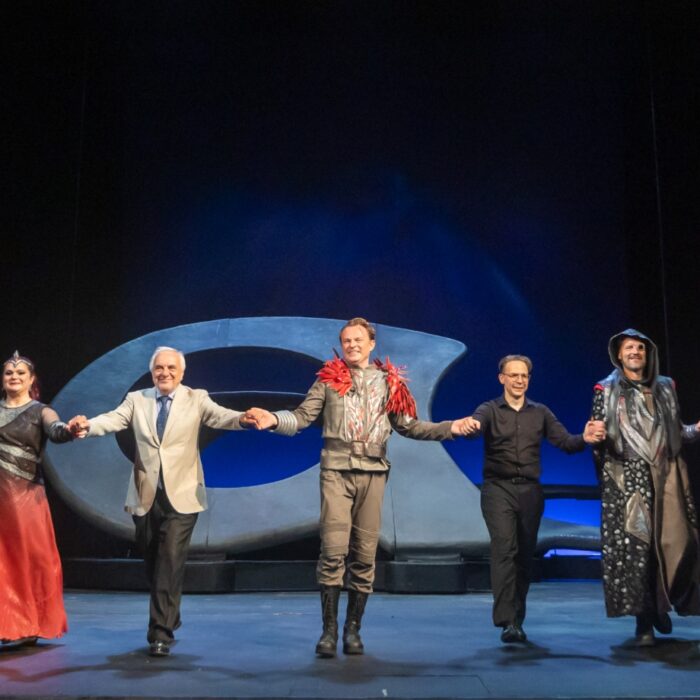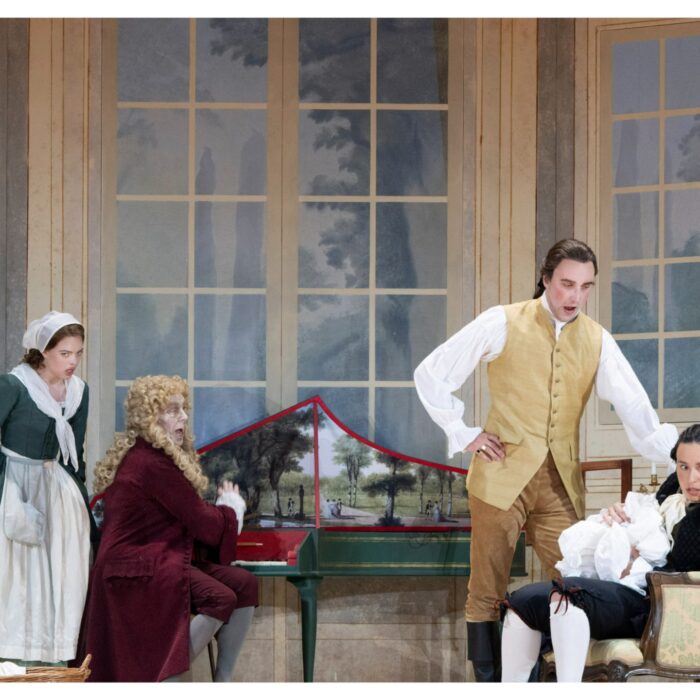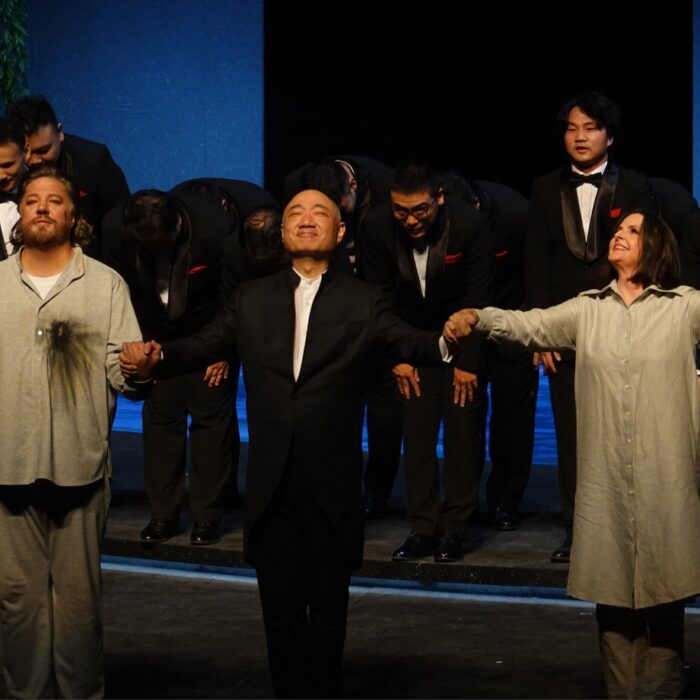
Teatro Real Review 2018-19: Das Rheingold
By Mauricio VillaThis review is for the performance on Jan. 19, 2019.
The Teatro Real has initiated the arduous task of staging Wagner’s tremendous masterpiece “Der Ring des Nibelunguen,” presenting one opera per season. Staging this renowned masterpiece, in many ways, is the biggest challenge for any opera company. Wagner’s tetralogy is one of the most famed art works in Western culture and the mark of a great opera company is the ability to put its own individual stamp on the cycle.
So it is that the company kicked off the proceedings with the prologue “Das Rheingold.” Per the company’s official website, this is the second time that the opera is presented at the theater since its reopening in 1997.
The responsibility of such enterprise has been entrusted to the conductor Pablo Heras-Casado and the stage director Robert Carsen and after one opera, there is a feeling that everything is headed in the right direction.
A Sturdy Cast
The cast was at the core of the performance’s success, with all the artists supporting one another wonderfully from scene to scene.
Samuel Youn as Alberich was arguably the highlight of the evening. He showcased a powerful and dark voice which could be easily heard over the heavy orchestra. He also displayed a thorough vocal line which permitted him to perform the declamatory style of his part beautifully. Most potent was his interpretation of the line “Meinen fluch fliehest du nicht,” where he did produced a coarse F-sharp perfectly on pitch. Young performed his character with a tremendous energy and was truly convincing as a tortured soul full of envy, anger, and lust.
Erda was portrayed but the American singer Ronnita Miller. Her part is only about seven-minutes long, but she made the most of it and the lush lyrical moments Wagner assigned her. Miller’s vocal line is exquisite and she possesses a velvety and dense timbre. Also aiding the memorability of her performance was the staging by Robert Carsen, who had Erda share a tender embrace with Wotan during this scene. It was absolutely breathtaking.
Sarah Connolly, an English mezzo soprano, explored Frika as a truly dignified individual. She knows the part very well, recently performing the Cycle at the Royal Opera House in London; she has also sung the part in Bayreuth. Connolly gave a lesson of containment and perfect phrasing.
Wotan, who is one of the leading characters of the Tetralogy, was sung by the American bass baritone Greer Grimsley. He sung the score elegantly with a dark and round sound. However, he seemed to push his voice to be heard over the heavy orchestration and this created a rather unstable vibrato in his upper register.
Mikeldi Atxalandabaso was a wonderful Mime in his role debut. He’s a Rossini, Mozart, and Donizetti veteran and she showed how this cornucopia of style can serve Wagner’s music. Albert Pesendorfer came in at the last minute to replace an ill Ain Anger as Fasolt and did a solid job. The rest of the roles were perfectly cast, with the result of creating one of the strongest casts heard in Madrid in recent years.
Vocally, “Das Rheingold” was a great success.
Sturdy But Unsurprising
Pablo Heras-Casado, who is the principal guest conductor of the theater, had previously presented Wagner’s “Der Fliegende Holländer at this house in 2017
This young conductor has a prolific repertoire which extends from the baroque era to contemporary compositions. He gave a brave but cautious lecture of the score; the orchestra sounded good and there were no surprises in tempi. The big dynamics were there, from the whispered first Eb on the strings at the beginning of the prelude to the outburst of sound when Alberich uses his ring against the Nibelungs in Scene there.
But this precise and methodical approach made it feel rather predictable. And when you can anticipate that next note and dynamic, the score simply surprise or move you or even feel new to you. The result was a performance that felt rather passionless at its core. Moreover, the choice to amplify the sound of the hammers, which play backstage in the third scene, came off as a blurred mess of sounds and uneven rhythm.
Environment & Social Issues
The production premiered in Oper Köln in 2000 and has been re-staged several times in Shangai and Barcelona’s Teatre del Liceu, among other places. It is a theatrical production and features no big scenery or sets. All the scenes happened inside three iron walls creating some kind of industrial atmosphere. The focus was on clever and realistic stage directionof the singers. It’s pure theatre, but quite committed to reflecting environment issues, or the fight between classes and fascism. For example, a one point, we see an army marching behind a militaristic Wotan and the gods as they enter Valhalla at the end of the opera.
The prelude presents a dry misty Rhine river where men dressed in suits throw their leftovers, as their pace increases frantically. Inside the garbage of the Rhine we see three beggars, the Rhine daughters, who look for their nourishment within the rubbish. The different between classes is physically represented in the erected gods, the ungraceful giants, and the nibelungs who crawl around the floor.
Robert Carsen is one of the most valued stage directors nowadays, and his productions can be seen in the major opera houses around the world. He always modernizes the operas to give a more suitable presentation to today’s audience, but he always respects the libretto and the music. You might not agree with his choices (and some members of Teatro Real’s audience were rather vocal about their disapproval), but what Robert Carsen does on stage is moving and makes sense.


